A Brief History of Project Management Ethics
Almost every profession has one—mantra or coda that expresses the ethical intent to do better, both morally and for the benefit of civil society. For example, in the medical profession, it’s “Do No Harm,” and for legal eagles, it is “To Protect and to Serve.” Ethics for artificial intelligence (AI) development is similar, only the decision maker for doing something either morally right or sinisterly wrong is an algorithm. Human coders are responsible for the original decision trees and are ethically bound by the idea of not letting the AI overlords destroy the human race.
These phrases and the intent behind them represent the combined work of Socrates, Hobbes, Kant, and many other philosophers, who have tried to define an ethical framework within which we can all “live long and prosper.” For project managers nowadays, the most common resource for figuring out ethical behavior was laid out by the PMI Institute in 2011. PMI gave us a toolkit, that includes a Code of Ethics for Professional Conduct, as well as an Ethical Decision-Making Framework for individuals and teams. Also published online is a PMI tribunal, set up to collect digressions from the code and adjudicate as needed (apparently, for members only).
PMI offers no over-arching slogan for the project management profession, like the medical industry has “Do No Harm,” but instead gives us cue cards that read like this:
- Responsibility is our duty to take ownership for the decisions we make or fail to make, the actions we take or fail to take, and the consequences that result.
- Respect is our duty to show a high regard for ourselves, others, and the resources entrusted to us. Resources entrusted to us may include people, money, reputation, the safety of others, and natural or environmental resources. An environment of respect engenders trust, confidence, and performance excellence by fostering cooperation—an environment where diverse perspectives and views are encouraged and valued.
- Fairness is our duty to make decision and act impartially and objectively. Our conduct must be free from competing self-interest, prejudice, and favoritism.
- Honesty is our duty to understand the truth and act in a truthful manner both in our communications and in our conduct.
As a distillation of thousands of years of thought on the matter, these cues sound as good as any others, but I have a few questions. First, are they enough? And secondly, are these slogans motivational today when the world is sick with a pandemic, and on the brink of a climate collapse?
A Few Personal Experiences
Back in the 80’s when I was just starting out as a project manager (PM) within a big corporation, I knew little about ethics other than what we were taught in college, yet I always considered myself an ethical person and someone dedicated to service. That said, I had no training whatsoever to guide me through the morass of corporate morals (and immorals) that ruled the day.
As a Quality Assurance PM, in charge of testing the code for one of the first Automated Teller Machines (ATMs) sold, it was brought to my attention that there was a bug in the code that had the potential to bring down the production line and cause millions in rework. As a newly minted manager, I still held onto the notion that I was in charge and could summarily halt production and see that the bug got fixed. Ha! I soon was informed by the C-levels that the code would be fixed during the next iteration, not to worry, that this is the “nature” of software, and, oh, by the way, would you like to take a cushy position in our new office on the other side of the country (with the subtext being to just go away and shut up). Torn, I didn’t know for sure if I was doing the right thing by taking the miraculous offer, or if it was wrong to NOT have stayed to fight harder for the customers who were about to have their transactions mangled by an automated juke box. Haunts me to this day…
Then there was my largest project ever, whose project goal was to collect data for a super INGO that spanned decades, and then incorporate all the project’s success/fail information into a searchable and transparent application that represented the collective work of the enterprise over time. To my dismay, I found most all of the PMs that held the data to not be forthcoming with failure data, yet blushing full of success data. In short, I was given the task of showcasing failure at the same level as institutional success, and the project managers were not having any of it. Even if there was a PMI tribunal back then (or any other kind), it wouldn’t have been large enough to contain the dishonesty of the resulting database. Based on the culture and history of that organization, this was mission impossible. In short, I’d been asked to be a whistleblower in a room without oxygen while holding a hand grenade about to go off.
The Role and Plight of the Whistle Blower
Whistle blowing has a long and checkered history of improving society, as well as destroying the blowers; often concurrently. Every day, we see examples of folks trying to do the right thing and then being mercilessly destroyed (both mentally and physically).
Take for example (just last month), the politically charged case involving Gabriel Sterling. Gabriel was the Georgia Election official who had enough and could not abide attacks on his younger project managers, so he stood up on national TV and screamed much in the style of Howard Beale (from the 1976 Sidney Lumet classic, Network), “I’m as mad as hell, and I’m not going to take this anymore!” As was the case with Howard Beale, Sterling’s life was threatened and his higher-ups dismissed him.
Historically, whistle blowers are both revered and terrorized. Truth be told, this seems to be the nature of ethical behavior in general. The list of blowers is endless, from the beloved Ralph Nader who gave us seatbelts in the 70s, to Edward Snowden who gave us a peek into a surveillance state we were never supposed to see. Speaking up about ethical violations has always been problematic; most so for the revealer than for the transgressor.
Take the case of Timnit Gebru, co-leader of Google’s Ethical AI team, who was first acclaimed for heroism in the line of duty by highlighting the inherent biases of face-recognition algorithms, and then summarily fired for bringing the problem to light. This case portrays the ethical heroism of a project manager fighting against racism / sexism / isms-in-general, yet at the same time illustrating the most common consequences of ethical action – unemployment!
Global Ethical PM… Looking at the Bigger Picture
One last case I feel is worth looking at comes from the oil-rich coast of Ghana. It’s described in the recent DW documentary, Oil Promises, the Dream of Ghana’s Black Gold. Here we find a classic battle of environment vs. development, but with a twist. In addition to a new oil refinery, residents of a local fishing village are promised new roads, a sewage plant, a new hotel, thousands of new jobs—the whole shebang really! Yet, a decade after the refinery is built, the people of the fishing village have nada, zilch—just a lot more pollution and a lot less fish. One could surmise from the historical data (of which there is plenty), that this was always going to be the outcome. Yet planners planned away…
This illustrates perhaps the crux of the ethics problem for 2021 and beyond: we may have thousands of years of ethics training and treatises, but do we have a way to say, no, this entire project is not ethical (and I’m not going to manage it)? Of course, one can say they have personal ethics. For example, I won’t work on defense-related contracts, as my desire to never produce weaponry exceeds my love of god and country. This personal ethic is subjective, whereas most project conceptions are more nuanced than that with the ethical consequences of the completed work hidden and not so easily determined as with a national defense contract that makes bombs.
From the rollout of Covid-19 vaccines to the development of housing and infrastructure projects in climate-changing hot zones, these 2021 projects present far more ethical challenges than any current personal (or team) ethics framework can solve. So, do we continue to produce products with labor coming from children or enslaved religious refugees? Should we continue to build luxury homes on land destined to burn or otherwise slide into the sea all the while the homeless live outdoors in tent cities or under bridges? As a professional group, like doctors or lawyers, do we have any responsibility to the overall well-being of the sick, indigent, or discarded amongst us?
Here is One Idea (Please Contribute Yours)
While this bigger question of global ethics in PM is well above my PM cum philosopher’s pay-grade, I propose this: a project-level ethical rating system, that could be applied to each project and be robust enough to burn down into the task level. This would give the PM a final scoring of the project’s ethical risk at the “go/no go/needs improvement“ level of project planning.
Much like a standard Risk Management matrix, values could be assigned based not on risk to one’s own individual project or portfolio, but instead, based on the risk to the community, country, or world at large. Sure, we already have environmental impact studies and tons of mitigation planning for any given project, but do PMs have a way to judge / evaluate / mitigate the ethical validity of the project as a whole? I think not, at least not today, but it’s easy to see how such a system could be incorporated into MS project using basic fields and calculations, or automated in the future using an ethical AI agent.
Yet here we are, at the brink of 2021! Who is it that will say what is ethical, and what is not, on both a grand and granular scale, and for each case within our daily workflow:
- The C-level team?
- The project stakeholders and/or investors?
- Our government officials?
- PMI?
- All of the above?
This ethical Gordian Knot might tax our brains, but someone (or something) must step up, and take true responsibility and firm accountability. I suggest that be the collective PMs of the world, at least until some unbiased AI learns how to do it for us.
“The world will not be destroyed by those who do evil, but by those who watch without doing anything.”
— Albert Einstein
Well, let me know your thoughts / solutions / ideas in the comments below, and best of ethical luck in 2021.
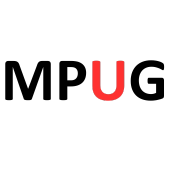
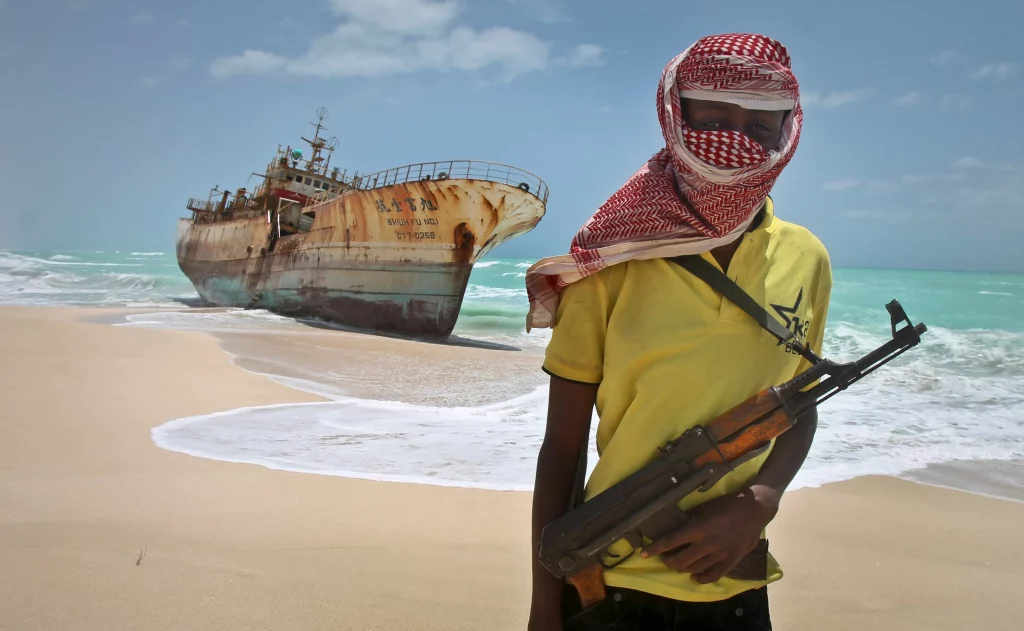
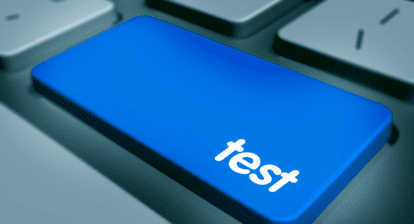
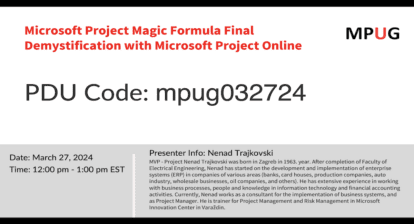
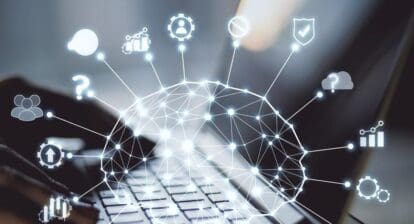

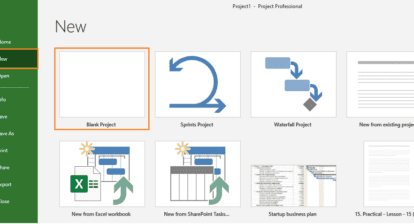
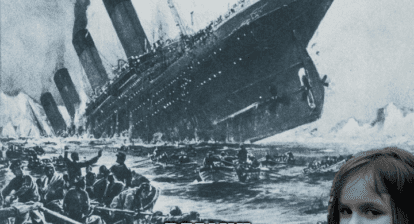
Eric Uyttewaal
Hi Jigs, great article, once again!
You raised a good question and also a question for the greater good. My thinking immediately went to: What questions should be in such an ethical rating system?
Here is one idea (borrowed from Green thinkers): “Will a member of the 7th generation down from you be positively or negatively affected by what you do today in this project? Is there a possibility that a member of that generation has difficulties with what YOU are expected to do today in your project?”
There are likely more good questions that should be part of ethical rating system for projects. Who knows one?